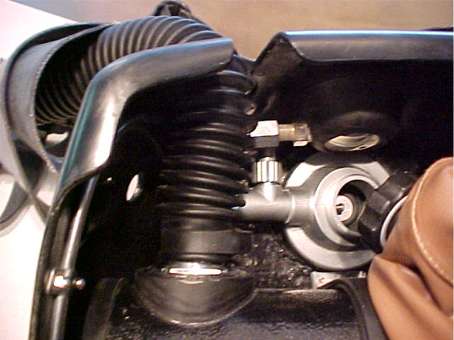
by Jan Willem Bech | Database OX GER
de The development of the LAR series diving apparatus The development of the LAR series diving devices has been excellently detailed in THIS article by Helmut Knüfermann. For an in-depth understanding of the evolution of these globally-utilized diving devices for...
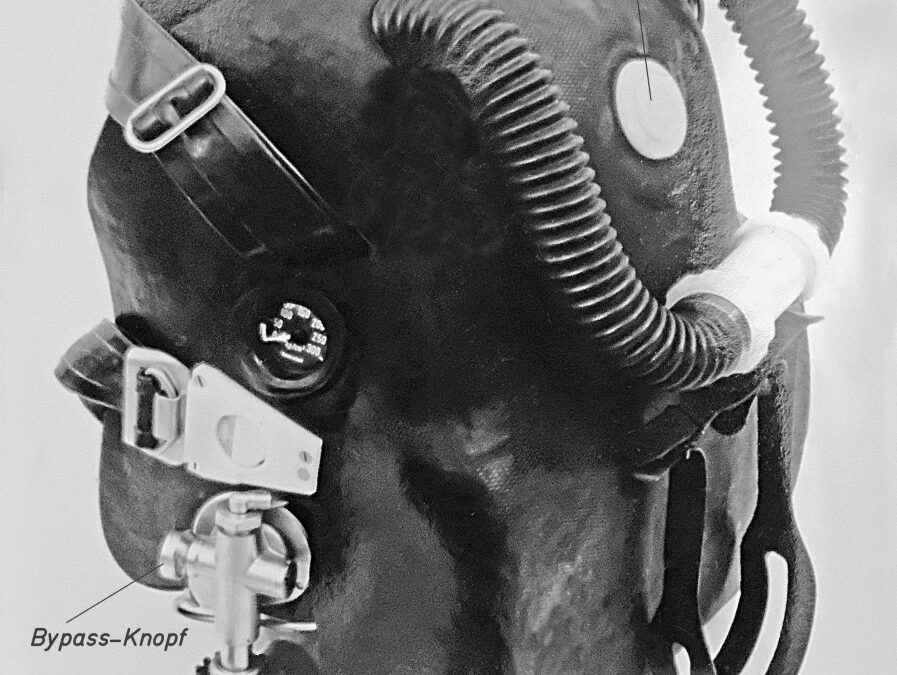
by Jan Willem Bech | Database OX GER
de The development of the LAR series diving apparatus The development of the LAR series diving devices has been excellently detailed in THIS article by Helmut Knüfermann. For an in-depth understanding of the evolution of these globally-utilized diving devices for...
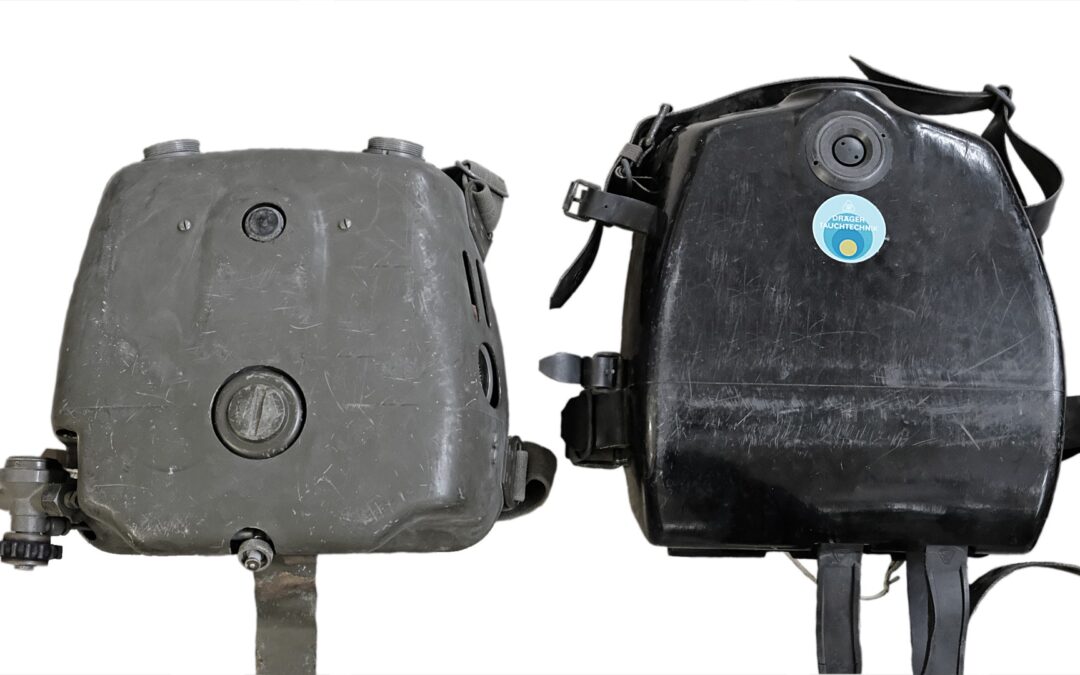
by Jan Willem Bech | Database OX GER
de The development of the LAR series diving apparatus The development of the LAR series diving devices has been excellently detailed in THIS article by Helmut Knüfermann. For an in-depth understanding of the evolution of these globally-utilized diving devices for...
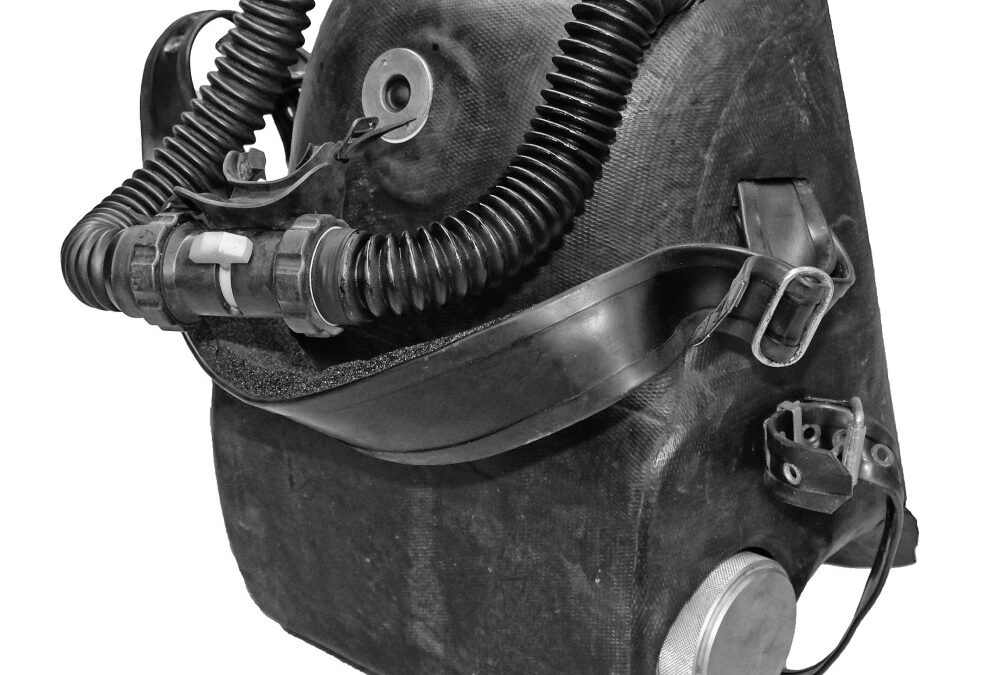
by Jan Willem Bech | Database OX GER
de The development of the LAR series diving apparatus The development of the LAR series diving devices has been excellently detailed in THIS article by Helmut Knüfermann. For an in-depth understanding of the evolution of these globally-utilized diving devices for...
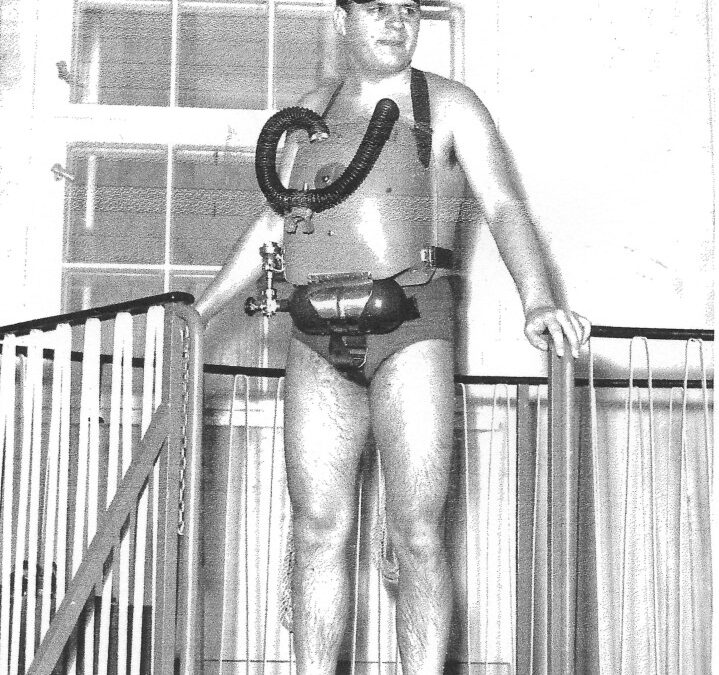
by Jan Willem Bech | Database OX GER
de The development of the LAR series diving apparatus The development of the LAR series diving devices has been excellently detailed in THIS article by Helmut Knüfermann. For an in-depth understanding of the evolution of these globally-utilized diving devices for...
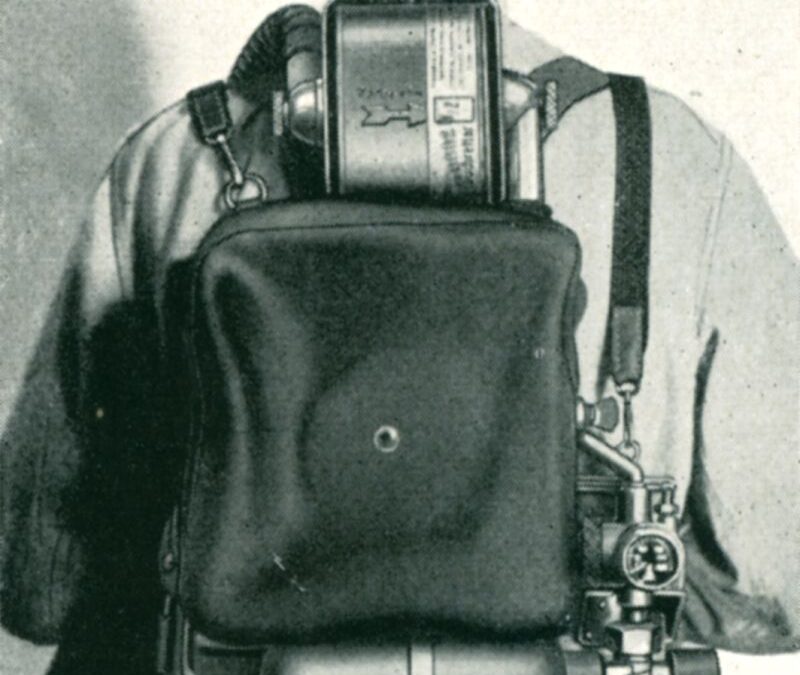
by Jan Willem Bech | Database OX GER
de The Hilfsatmer 186 and 220 (Neurode) The Hilfsatmer model 186 (1942) and model 220(B) (1945)are back-worn oxygen rebreather of the pendulum principle.The Dräger Hilfsatmer (Supporting breathing device) was approved for underground operation in the Ruben mine by the...
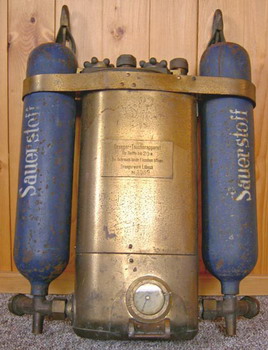
by Jan Willem Bech | Database OX GER
de Dräger Misch Gas Gerät DM20 und DM40 In 1909, Dräger developed a series of hoseless helmet diving systems known as the Gurtel Taucher Apparat the DM20 and the DM40 diving apparatus. The Gürtel Taucher Apparat is described here. The DM20 is a system intended for...
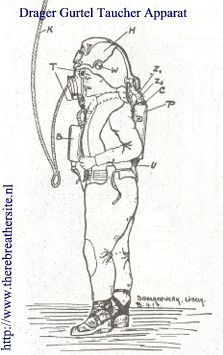
by Jan Willem Bech | Database OX GER
de Gürtel-Taucher-Apparat or Pionier tauchgerät The Draeger Gurtel Taucher Apparat is made for dives up to a depth of 20 metres. The standard model TG-1 was made for dives up to 1 hour while model TG-2 was made for the same depth but for 2-hour dives. Besides these...
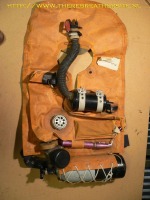
by Jan Willem Bech | Database OX UK
gb Submarine escape breathing apparatus This relatively unknown oxygen rebreather is in the collection of teh Royal Navy Submarine Museum. The device can be seen here thanks to Åke who provided these photos. The device was used aboard HMS Umpire by PO A. Bland who...
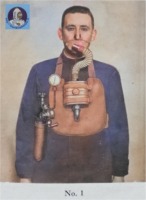
by Jan Willem Bech | Database OX UK
gb A special variant of the Salvus The photos below show two unusual configurations of the Salvus oxygen rebreather. No1. Special ‘Salvus’ with oxygen cylinder, reducing valve, carried at the side in a pocket attached to the waist-belt; CO2 absorbent chamber and...
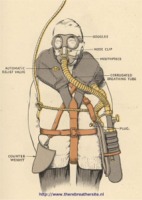
by Jan Willem Bech | Database OX UK
gb Very early 1914 oxygen multi-role rebreather The Salvus ANS The Salvus oxygen rebreather is a multi-purpose device. It was used for firefighting, breathing in toxic atmospheres and for shallow diving up to 33 ft. The device also had application as an Amphibian...
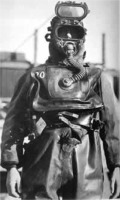
by Jan Willem Bech | Database OX UK
gb Early 1942 the Sladen Suit development The Sladen Suit is named after an English officer named Geoffrey Mainwaring Sladen. Sladen was born in Reigate, Surrey, England, on 3 Aug 1904 baptized and on 31 Aug 1904 married Anna Maria Rolt in Amersham in 1931.Sladen...
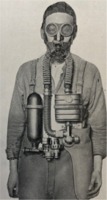
by Jan Willem Bech | Database OX UK
gb After 1878, Henry Fleuss and Robert Davis Henry Albert Fleuss and Robert H. Davis In the period between 1878 and 1933, Henry Albert Fleuss and Robert H. Davis worked together at Siebe Gorman & Co. Development began with the well-known Fleuss device, which...
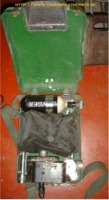
by Jan Willem Bech | Database OX UK
gb Siebe Gorman Stelox oxygen rebreather Aircrew (?) Oxygen rebreather Very little information remains about this breathing apparatus produced in the late 1960s. The device appears to have been used for aviation. The apparatus is an oxygen system with a scrubber and a...
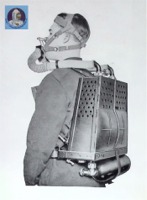
by Jan Willem Bech | Database OX UK
gb Siebe Gorman Vitox oxygen rebreather Constant feed Oxygen rebreather This apparatus is on the same regenerative principle as that of the “Proto”, but instead of being disposed equally back and front of the wearer, it is designed to be carried wholly on the back,...
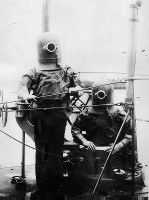
by Jan Willem Bech | Database OX UK
gb Submarine escape 1906 Captain Hall, Doctor Rees and Robert Davis submarine escape system 1906 using oxylithe Early submarines had a tendency to sink, and a number of accidents before the First World War made the Admiralty look into the possibility of developing an...
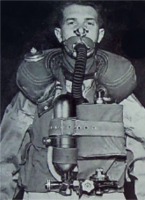
by Jan Willem Bech | Database OX UK
gb Amphibian MK2 with neck pattern breathing bag This apparatus is on the same principle as the Amphibian Mark 1, the main difference being in the breathing bag which is formed to fit round the neck and shoulders, as in the “Salvus” A.N.S., instead of on...
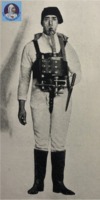
by Jan Willem Bech | Database OX UK
gb The original Amphibian MK1 for underwater use and in poison gas Figures 1 and 2, the original “Amphibian” dual-purpose apparatus, i.e., for use in poison gas or under water, consists of a steel cylinder, charged with pure oxygen for depths not exceeding...
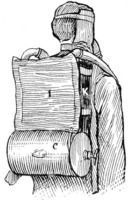
by Jan Willem Bech | Database OX UK
gb First practicable Oxygen breathing apparatus 1878 Henry Albert Fleuss, born in 1851 and passing away in 1933, was an esteemed figure in the field of diving engineering, notably serving as the Master Diver for Siebe, Gorman & Co. of London. In the early hours of...
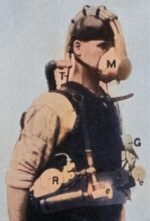
by Jan Willem Bech | Database OX UK
gb The W.E.Garforth breathing apparatus In 1906, William Edward Garforth, managing director and later director of Pope and Pearson presented his on-demand breathing apparatus for use in mines. The device with a 3-hour usage time and weighting 14,5 kg was distinguished...
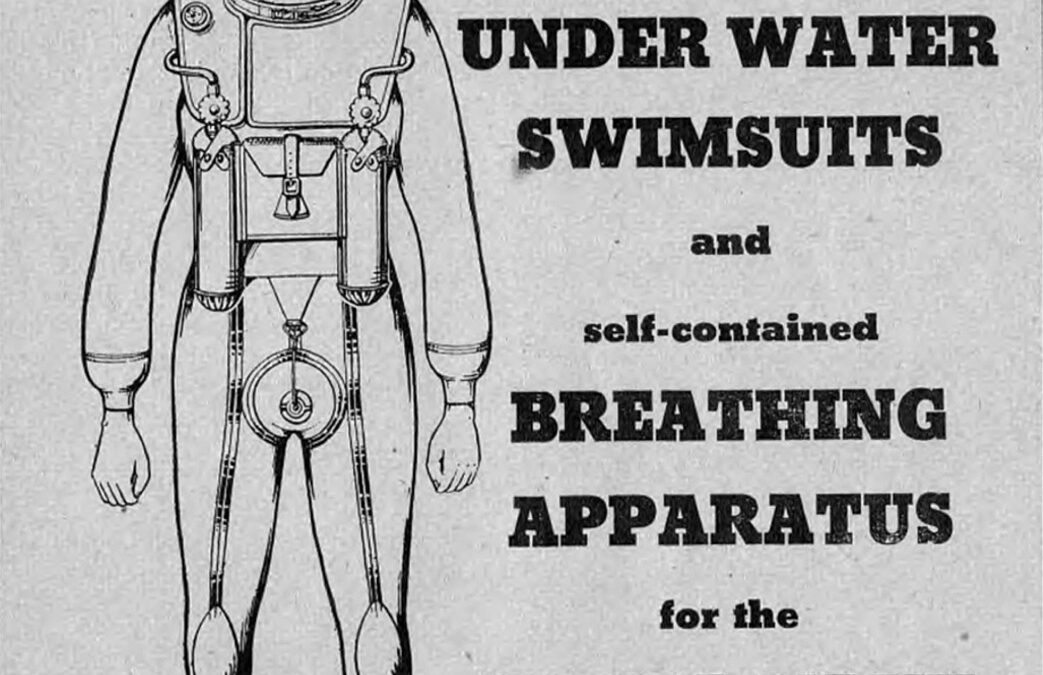
by Jan Willem Bech | Database OX UK
gb Dunlop underwater swim breathing apparatus UWSBA Over the past 20 years, I have been asked fairly frequently about the Dunlop diving suit. Dunlop was active for the Admiralty in WWII and produced a diving suit and underwater swimming and breathing apparatus. After...
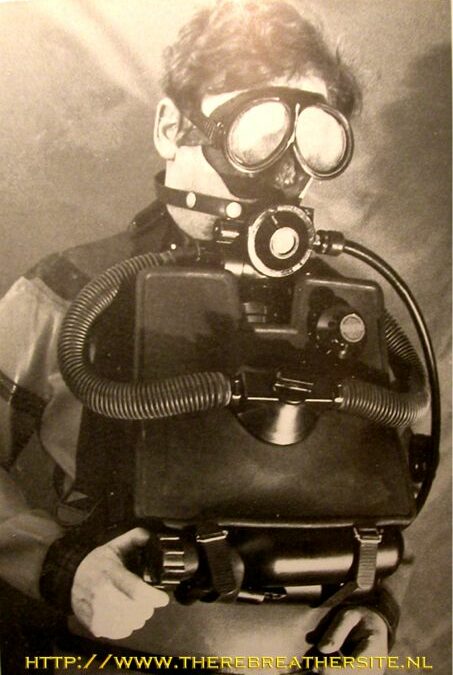
by Jan Willem Bech | Database OX UK
gb Oxymax-3 by Submarine Products The Oxymax 3 is a oxygen closedcircuit capable of using oxygen and oxygen/helium mixtures. The unit has a build in open circuit regulator by means of an demand valve placed in the mouthpiece. De unit was build by Submarine Products in...
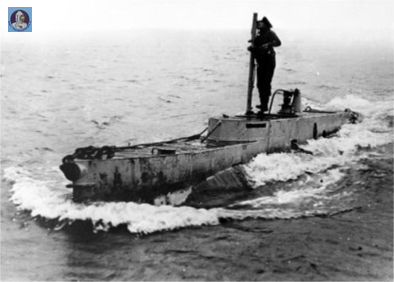
by Jan Willem Bech | Database OX UK
gb au X-craft Midget Submarines Watchkeeper-suit In March 1942, the the story of the X-craft submarines began with Job 82. Job 82 was the order to build two midget Submarines code-named D.235 and D.236. The two prototypes were later named X3 and X4 with which the name...
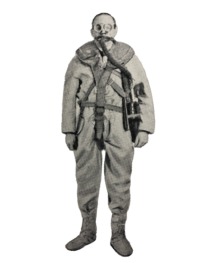
by Jan Willem Bech | Database OX UK
gb Siebe Gorman Beach Recovery Suit Robert Davis book Deep Diving and Submarine operations refers to the Beach Recovery Suit as used in the Normandy beach landings. The suit has great similarities with the Salvus diving pattern 3485 however it is equipped with a...

























